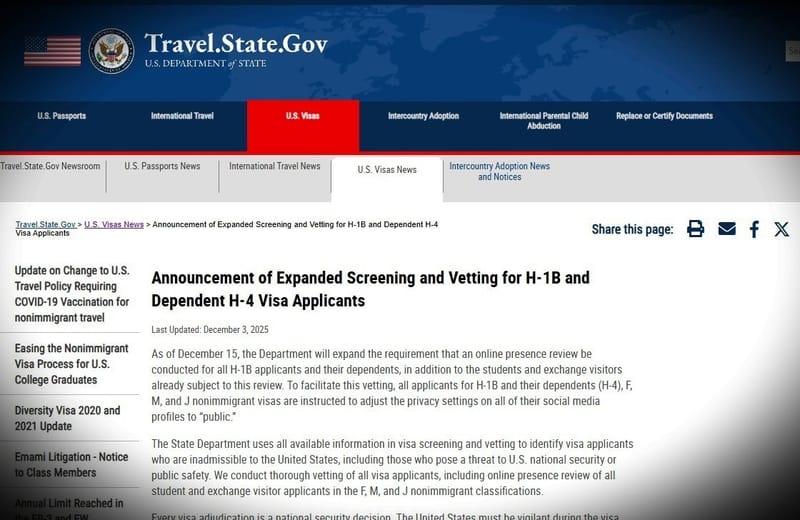Zoho Co-founder Sridhar Vembu Urges H-1B Holders to Return to India Amid US Visa Reforms
A prominent tech leader's call to action signals a potential shift in global talent flows for skilled professionals impacted by tightening US H-1B visa policies.

Subscribe to our newsletter and stay informed about latest H1B news, policy updates and and other developments.
Article Summary
Zoho co-founder Sridhar Vembu has urged Indians working abroad on H-1B visas to return to India, citing proposed US H-1B visa reforms including a significant fee increase to $100,000 and a shift to a wage-based selection system. Vembu advocates for a 'Swadeshi technology movement' and emphasizes finding happiness and opportunities within India, having returned himself. His comments follow a draft proposal by the US Department of Homeland Security titled 'Reforming the H-1B Visa Non-Immigrant Visa Programme'.
Original Article: news18.com
[ Sentiment: negative | Tone: factual ]
This summary and analysis were generated by TheNewsPublisher's editorial AI. This content is for informational purposes only; it does not constitute legal or immigration advice.
[ Sentiment: negative | Tone: factual ]
This summary and analysis were generated by TheNewsPublisher's editorial AI. This content is for informational purposes only; it does not constitute legal or immigration advice.
TNP AI: Key Insights
Sridhar Vembu's strong stance on H-1B visa holders returning to India signals a significant shift in sentiment among some prominent tech leaders, directly impacting skilled professionals contemplating their future amidst US policy changes. For H-1B visa holders, this narrative underscores the growing uncertainty and offers a clear alternative perspective on career and life choices, potentially encouraging a re-evaluation of their long-term plans in the U.S.
The proposed H-1B reforms, including the substantial $100,000 fee and the shift from a lottery to a wage-based system, represent a tightening of policies that contrasts with previous, more accessible H-1B pathways. This development could accelerate the 'brain drain reversal' trend, bolstering India's domestic tech ecosystem while intensifying the global competition for skilled talent, pushing more professionals to consider options beyond the U.S.




